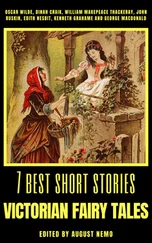I am Lancelot. Toby inherited me from her brother and sister-in-law, my parents — dead tragically early. I have no memory of them. I have been Toby’s adoptee and later her assistant during the two decades in which her books, never claiming to be factual history, claiming only to be possibly true, found favor among young people, though they never threatened to outchart the witchy-wizard series.
Toby’s version of history depends on the principle of parsimony. That is: her accounts are the most economical way of explaining what cannot be explained in a briefer way. The rout at Thessalonica required subterfuge and optical illusion. As for the Alchemist of Rotterdam, his existence is postulated by the metaphoric pricking of the infamous tulip bubble. We know now that the prized tulips were made multicolored by a virus. The virus inducer is Toby’s, a scientist who understood that invading organisms could work their will within a plant. He infected bulb after bulb, using a rudimentary syringe. Gorgeous, those tulips were. The second generation died.
“Produce evidence of the existence of that protobiochemist,” said some rigid historian.
But, wrote Toby’s most admiring reviewer, she does not fill up her books with data and a bogus sense of the past. It is her genius to be able to imagine time and place and person so fully that they are as good as real — or better. History as diversion.
We bought the cottage on Lake Piscataqua with the continuing royalties from The Spy of Thessalonica and The Alchemist of Rotterdam, and with the honoraria from Toby’s appearances on panels and platforms. A devoted suitor brilliantly invested the money.
Toby was by now sixty — I was twenty. She was tall as a young tree, thin as a spear. Her hair that had once been blond, my hair that had once been blond, both had darkened to the brass of an ancient Greek drachma. She wore pants and shirts of a similar shade. Her chin was cleft, like mine. Her eyes were pewter. (Mine, certain young women told me, were dark chocolate.) Her tales unfurled behind a brow broad as a garden spade. (My own brow is narrow, like a dibble.)
At Piscataqua we repaired the little stone house and whitewashed its inside, and in the middle of the one room (the bedrooms were lofts, a minimal kitchen occupied a corner) we spread the Turkish rug that had inspired Who Set Fire to Smyrna? In that tale the incendiarism was caused by Turks dressed as Armenians and Armenians dressed as Turks. No one could tell friend from foe, according to the twelve-year-old Jewish narrator who observed the entire conflagration, running and hiding, running and hiding, scribbling all the time…
Behind the stone house we staked out a plot for a vegetable garden and began digging the foundation for a gazebo — Toby would write her next work there, whatever it was. We became regulars at the post office — Toby’s letters to the Szatmars, along with photographs of me, went out twice weekly. We made friends with fishermen. Every morning at four they came with their glistening catches to the docks at the sea, ten miles away from us.
Our smooth lake in sunlight resembled Toby’s tea of immortality. Under the moon, ruffled, the lake looked like the carbon paper that lay crumpled in our wastebaskets. Toby disdained computers and word processors, typed her work on an old Hermes. Carbons for copies she had always purchased in the secondhand typewriter store on the third floor of an East Side building, a store right next to Uncle Franz’s shop. Uncle Franz was a numismatician, dealing in history himself. But he was history himself, Toby mentioned more than once; he embodied a grim horror — a schoolboy who, alone among everyone he knew, was not murdered. Toby’s eyes grew dark, her jaw stiffened when she referred to this.
“Will you put Uncle Franz into a book someday, his miraculous escape? It’s time you told me about it, anyway.”
A day passed before she responded. Then: “Here is how Franz escaped. A large group of Jews including his family had been marched from their small city to a village near a forest some miles from Budapest. They were crammed into a three-story wooden structure. They knew they would be moved any day to a cruel and permanent place. Franz and his family were on the third floor. Snow covered the hard earth. The building was unguarded.
“‘Jump from the window,’ his mother hissed that first night.
“‘Mama…’
“‘Jump.’
“‘Mama.’
“She opened the window and picked him up — he was a slight twelve-year-old — and held him to her massive chest. Then her iron hands grasped him under the armpits. She thrust him through the window toward the icy night, and held him in the air like a blanket to be shaken. He had stopped saying ‘Mama.’ She held him and held him and held him. Then all at once she bent double over the sill and released her child. He landed unharmed on snow, and stumbled into the woods, and kept going. He met others. They survived the war there, some of them: the ragged, the starving, the ill. If you put your ear to Franz’s chest you can still hear the rattle of an old lung disease.
“Could I offer that story to the world, Lance? What could I add to it that would not degrade it? Winged soldiers, Dutchmen poking needles into flowers, scamps on the docks of Smyrna — they are my material, history as diversion, the fellow said. They are my antidote to the unbearable past.” She added in a labored voice, “Franz was the only member of his entire family to survive, the only student from his school.”
“Franz and Madame…they met as refugees?”
“Yes.”
“They couldn’t have children together, Franz and Madame?”
“No.”
“Uncle Franz is the last of the Szatmar line.”
Silence. Then: “You could say so.”
We attended the annual business meeting of the lower valley historical society. “Piscataqua?” Toby inquired during the social hour that followed.
“An old name dating from the centuries when the area was populated and governed by its aboriginal inhabitants,” said Mr. Jennings, the chairman, bending his head toward the beautiful woman with the metallic hair. “It has been determined that the names of the lake and the river came from the Abenaki language, the word being a probable combination of a syllable meaning ‘branch’ and another meaning ‘a river with a strong current.’”
“How ancient is Abenaki?”
“Oh, it was spoken before Columbus.”
“Latin was spoken before the Babylonian captivity.”
“Nevertheless.”
“Nevertheless,” she repeated in her golden voice, “linguistic economy indicates that the river and the lake were named not by the Abenaki but by the Roman-Briton arrivistes.”
“My dear Ms. Bluestein,” he said, falling in love before my eyes — well, he wasn’t the first to do so—“Romans didn’t arrive on these shores until the nineteenth century, when they came in droves. Mostly shoemakers and fruit farmers.”
“My dear Mr. Jennings, you are talking about Italians, as you well know. The Roman-Britons came in 500 A.D.”
“How on earth — on sea, ha-ha — did they travel?”
“In Roman longships, descendants of Roman galleys, themselves descendants of Roman quinqueremes. The longships made it to shore and then crumbled.”
“Then there is no proof of their existence.”
“There is no proof of their nonexistence.”
Mr. Jennings produced a smitten smile. “What do you think they were like, these ships that sailed the sea before the era of sails?”
“Oh, they had sails. And oars, of course.”
“The last of the Romans left Britain in 410,” Mr. Jennings said. “They did not sail the Atlantic, then called Thalassa. They sailed only to the Continent and then made their way home on foot. According to popular belief, the first European to reach North America was Leif Eriksson. He landed on the coast of what is now Newfoundland in 980.”
Читать дальше












